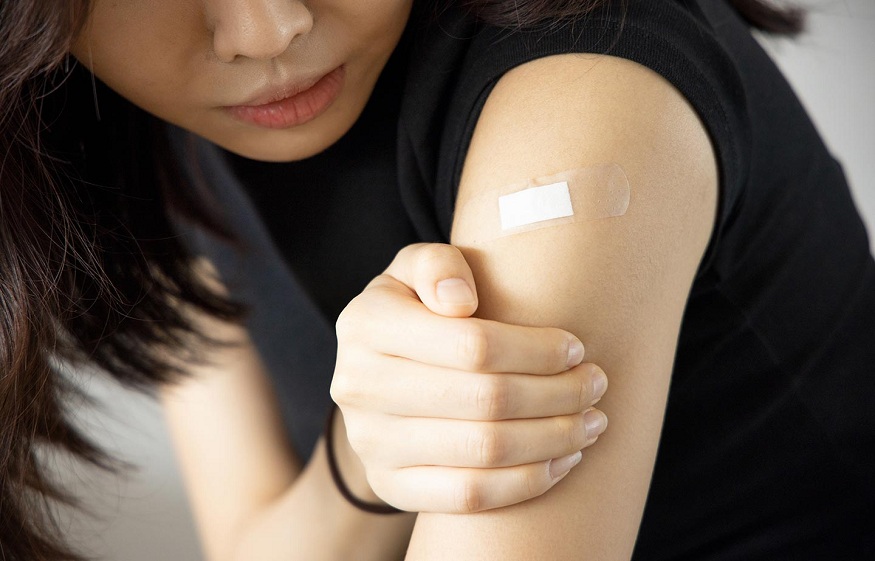Like other drugs, vaccinations can cause negative effects. After receiving the vaccine, it is not unusual to encounter adverse effects. This demonstrates that the vaccine is instructing the immune system of your body on how to defend itself against the disease. Not everyone experiences side effects. The majority of adverse effects are rather modest and, in most cases, only last for a day or two.
The majority of adverse effects disappear after a few days have passed.
After receiving the mRNA COVID-19 immunization, there has been a rise in the number of reported cases of myocarditis and pericarditis in the United States, notably in boys between the ages of 12 and 29. Inflammation of the cardiovascular system is referred to as myocarditis, whereas inflammation of the pericardium, which surrounds the heart, is referred to as pericarditis. These reports are quite uncommon.
According to the cases that were documented, the issue occurred more frequently after the second dosage of the COVID-19 vaccine, and it typically occurred within one week after receiving the COVID-19 immunization. The majority of those who received care reported feeling better after obtaining medication and being allowed to relax. Some of the symptoms as side effects of the vaccine include Shoulder Pain After Vaccination.
Uneasy and shallow breaths
The Centers for Disease Control and Prevention (CDC) advises avoiding getting another dose of any COVID-19 vaccine if you or your child suffers myocarditis or pericarditis after receiving a dose of an mRNA COVID-19 vaccine.
This is a problem with blood clotting that poses a potential hazard to one’s life.
Persons who have experienced a severe allergic reaction after obtaining an mRNA COVID-19 vaccine and people who are not able to get an mRNA COVID-19 vaccine owing to limited availability, personal concerns, or religious beliefs are two examples of those who fall into this category. According to the findings of recent studies, recipients of the mRNA COVID-19 immunization do not appear to be at a greater risk of developing this blood-clotting issue. Shoulder Pain After Vaccination is the most common side effect you will experience.
When you or your kid receives a vaccination, the medical professional administering the shot will provide you with a document known as the Vaccine Information Statement (VIS). The VIS provides information regarding the potential for the vaccine to cause both common and rare adverse effects. Your doctor or other health care professional will probably talk to you about any potential adverse effects. Downloads of the VIS are additionally offered on the website of the CDC.
In addition, information regarding adverse events can be found on the package inserts that are issued by the producer of the vaccination. In addition, these inserts will often show the rates of adverse events that occurred in experimental and control groups while the vaccine was being tested prior to going on the market.
Reactions that are caused by stress
There is a remote possibility that immunization could cause adverse reactions associated with stress, such as discomfort, panic, and passing out. They have the potential to make people feel uneasy or fearful about getting vaccinated, which can act as a barrier to further immunization.
A relatively tiny minority of persons who experience significant levels of anxiety around vaccinations might: become paler.
Experience numbness or tingling in the face, hands, or feet
These symptoms can bring on fainting either during the administration of a vaccine or shortly afterward. After the procedure, some people will continue to look pale, sweat excessively, and have low blood pressure for a few minutes. Having a fit can increase the risk of sustaining head injuries in the event of a fall.
Notify a health care practitioner if you have a history of passing out before, during, or after vaccination, if you have a severe phobia of needles or if you have experienced it recently. There is a possibility that you will be able to obtain your vaccination while lying down. Therefore, those who provide medical care will be able to plan for and cope with the adverse impacts.
Various adverse effects with each dose
There are distinctions between the various coronavirus vaccinations. Some medications have the propensity to cause greater adverse effects after the initial dose, whereas other medications generate more adverse effects with subsequent doses. The extremely usual adverse effects are still present, and it is expected that they will only persist for a day or two at most.
NHS Scotland recommends that you complete the full course of vaccinations even if you experience some discomfort as a result of the vaccine. The whole treatment that is prescribed for you will offer the highest level of protection against the infection.
Vaccinations assist the body’s immune system in becoming better prepared to fight off disease.
After already being subjected to a disease, you might end up developing some immunity to it. However, the chances of having a severe reaction after getting the flu shot are far lower than the chances of having serious consequences or dying as a result of the disease. If you’re experiencing Shoulder Pain After Vaccination, then you shouldn’t worry, as it is the most common symptom.

